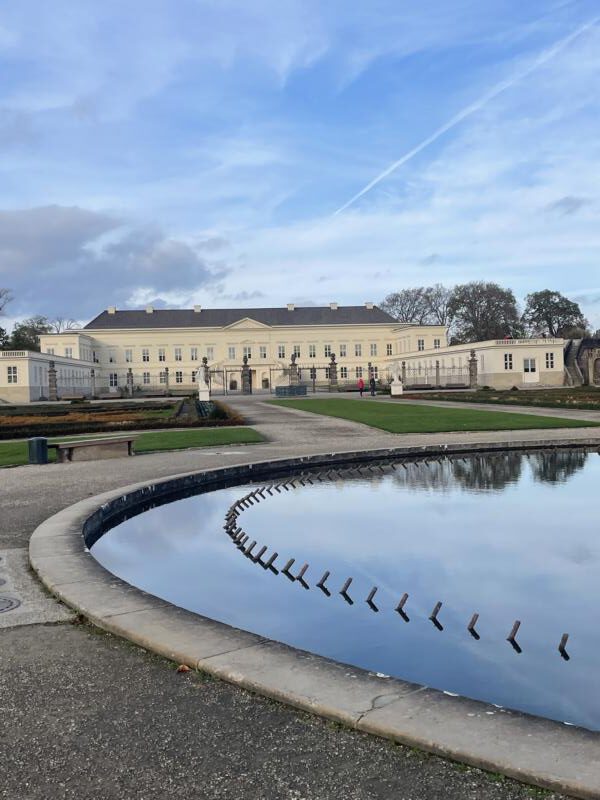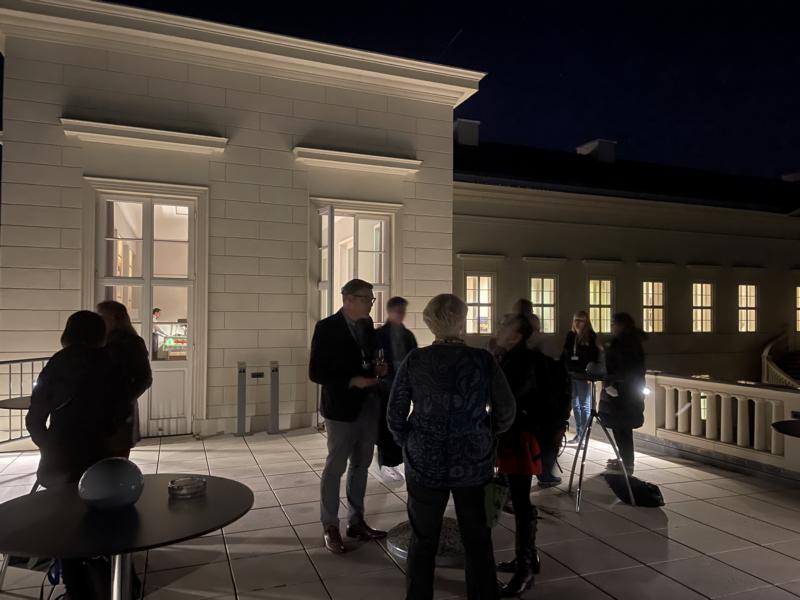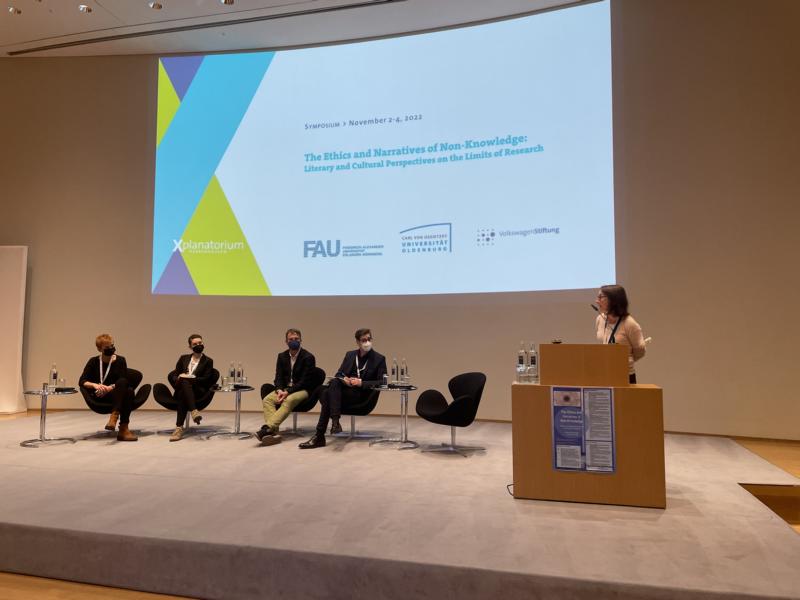News: Special Issues of JLS (2026), Newsletter.
We are excited to announce that we are going to edit a two-part special issue of JLS (Journal of Literature and Science) on The Ethics and Narratives of Non-Knowledge, to be published in February 2026. Visit our News section to learn more, and subscribe to our newsletter to stay updated.
ISECS, Rome, 3-7 July 2023: Panel 139: “Non-Knowledge is Power”? Transformations of the Concept of Ignorance in Enlightenment Literature and Culture
Financially supported by DAAD and the Deutscher Anglistikverband (German Association for the Study of English), our panel at the International Society for Eighteenth-Century Studies Congress included contributions by Claude WILLAN, Bartosz ŻUKOWSKI, and Anton KIRCHHOFER. For a summary and some visual impressions, click here.
Symposium: The Ethics and Narratives of Non-Knowledge: Literary and Cultural Perspectives on the Limits of Research, 02-04 November 2022
Volkswagen Stiftung Thematic Week “Ethics of Science. Current Challenges, Opportunities and Limitations”
Our symposium “The Ethics and Narratives of Non-Knowledge” was part of the thematic week “Ethics of Science. Current Challenges, Opportunities and Limitations”, hosted by VolkswagenStiftung. For a summary and some visual impressions, click here.



Publication: Anglistik, Issue 33.2 (September 2022)
Selected Papers from the 2021 Conference of the German Association for the Study of English, including contributions from our panel “Limits of Knowledge – Knowledge of Limits”.
Selection Editor: Daniela Wawra und Jonathan Rose. https://angl.winter-verlag.de/issue/ANGL/2022/2
Project Motivation: Why Study Ignorance, Non-Knowledge, and Agnotology in Anglophone Studies, Literature and Culture? Why Now?
Most recently, but also ensuing the crisis in the humanities much has been written about knowledge in literature, fiction or literary form (Kley and Merten 2019, Chodat 2017, Jay 2014; cf. Anglistik 30.2). We focus on how we speak – who and in which contexts – about limits of knowledge and knowledge of limits. Art historians call it the horror vacui – artists’ fears of leaving unadorned spaces on their paintings. Among cartographers of the 16th and 17th centuries, it was common to fill blank spaces on the maps with compass roses, sea monsters, even imaginary islands and cities. It was only with the emergence of empiricism and science that the void began to feel less intimidating – or did we learn to phrase what we do not know differently? Non-knowledge appears to be fundamentally opposed to human curiosity and therefore the basis of all scientific endeavour, however, philosophically, it is part of the Socratic paradox claiming that perfect knowledge cannot be attained. In all disciplines, there are puzzles upon which there is no consensus in the scientific community, other than recognizing them as unresolved: the millennium problems in mathematics, the causes of the Great Vowel Shift in linguistics, the identity of Jack the Ripper in criminology, or the authorship debate in Shakespearean studies. It is the aim of this panel – not to solve these puzzles, though you are welcome to try – but to analyse how our disciplines as well as literary and cultural practices voice and deal with non-knowledge.
Non-knowledge, ignorance, gaps and limits of knowledge have always been controversial but also very productive topics in the humanities, for instance in philosophy (Kant, Herder, Humboldt), psychology (Freud), theology and ethics (Cusanus ‘ docta ignorantia, Jonas’ ethics of responsibility), history (Foucault, Greenblatt, Gallagher, White), and literary theory (Iser’s theory of gaps). In popular science, Dawkins famously referred to phenomena of non-knowledge as “the worship of gaps”, i.e. the faithful acceptance that some problems are ‘not meant to’ be solved (2006: 152). Our project will provide a historical perspective on gaps in Anglophone literature and culture; as much as it will explore areas of knowledge in which scholars hit the limit of their knowledge. It is at this point that interdisciplinarity becomes more than a buzz word, as one discipline may contribute new methodologies and perspectives to fill the gaps of knowledge identified by another.
- Historical ways of coping with gaps in human knowledge and their representations, e.g. the problem of longitude, the Shakespeare authorship question, as well as long-term effects of gaps in knowledge closed,
- Representation of non-knowledge, literary and medial re-enactment of non-knowledge
- Relationship of knowledge and power, reproduction of knowledge by power (Foucault 1969) and the implications of these ideas for non-knowledge,
- Strategies of coping with insufficient knowledge, effects on political action and public reaction, such as expert discussions on climate change (Janich/Simmerling 2013), ecocriticism, political or ideological instrumentalization of non-knowledge or lack of knowledge; emergence of conspiracy theories and historical revisionism, mythologization, utopisation of the unknown (‘lost world literature’)
- Non-knowledge as a narrative strategy, articulation and evaluation of non-knowledge by language, ‘unresolved issues’ in linguistics and theory formation,
- Cross-disciplinary approaches to solving puzzles, e.g. forensic linguistics as a tool in criminology, non-knowledge communication in academic contexts (Rhein 2015), expressions of uncertainty as symbolic action (Campbell 1985). approaches to non-knowledge in didactics, informed ignorance, maieutics, e.g. The Ignorant Schoolmaster (Rancière 1987).
Works Cited
Campbell, Brian L. “Uncertainty as Symbolic Action in Disputes Among Experts”. Social Studies of Science 15.3 (1985): 429-453.
Chodat, Robert. The Matter of High Words: Naturalism, Normativity, and the Postwar Sage. Oxford: OUP, 2017.
Dawkins, Richard. The God Delusion. Houghton Mifflin, 2006.
Foucault, Michel. L’Archéologie du Savoir. Gallimard, 1969.
Janich, Nina and Anne Simmerling. “‘Nüchterne Forscher träumen…’– Nichtwissen im Klimadiskurs unter deskriptiver und kritischer diskursanalytischer Betrachtung”. Diskurslinguistik im Spannungsfeld von Deskription und Kritik. Hgg. Ulrike Meinhof, Martin Reisigl, Ingo H. Warnke. DeGruyter, 2013. 65–99.
Jay, Paul. The Humanities ‘Crisis’ and the Future of Literary Studies. Palgrave Macmillan, 2014.
Kley, Antje, and Kai Merten. What Literature Knows. Forays into Literary Knowledge Production. Lang, 2018.
Rancière, Jacques. The Ignorant Schoolmaster. Five Lessons in Intellectual Emancipation. Stanford University Press, 1991.
Rhein, Lisa. Selbstdarstellung in der Wissenschaft. Eine linguistische Untersuchung zum Diskussionsverhalten von Wissenschaftlern in interdisziplinären Kontexten. Lang, 2015.
Header Image: Jodocus Hondius, Nova totius terrarum orbis, 1625. Wikimedia Commons.
Impressum:
Webmaster: PD Dr. Simone Broders, Institut für Anglistik und Amerikanistik der FAU Erlangen-Nürnberg. Kontakt
Privacy Policy / Datenschutzerklärung: http://limitsofknowledge.eu/privacy-policy/
